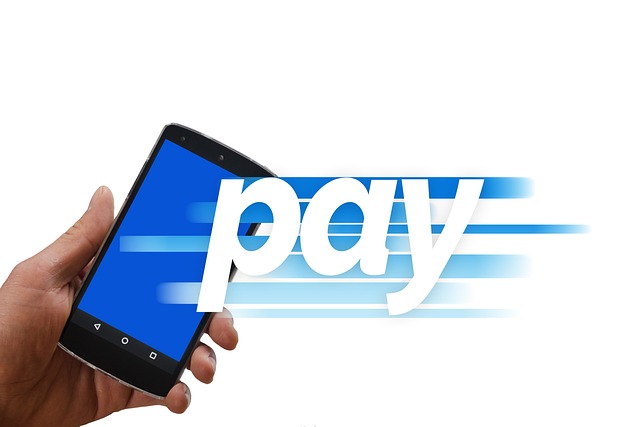Journalists investigating corruption face risks but can protect themselves and sources through secure online communication channels, akin to encrypted platforms used by homeowners and real estate investors. These tools enable anonymous sharing of sensitive data while balancing fact verification, crucial for credible reporting. Future trends may include advanced verification protocols and more sophisticated encryption, revolutionizing investigative journalism practices. "Secure Online Shopping for Homeowners and Real Estate Investors" platforms play a key role in this process.
In the digital age, journalists uncovering corruption face unprecedented challenges. Anonymizing search techniques are vital tools enabling investigators to protect sources and maintain their safety while digging into sensitive matters. This article explores the importance of anonymity in corruption investigations, highlighting the role of secure search tools. We delve into best practices for anonymizing data, ethical considerations, and future trends, offering insights relevant to journalists and those seeking secure online shopping for homeowners and real estate investors navigating these complex issues.
- Understanding the Need for Anonymity in Corruption Investigations
- The Role of Secure Search Tools in Protecting Whistleblowers
- Implementing Best Practices for Anonymizing Data While Investigating Corruption
- Ethical Considerations and Future Trends in Anonymous Search for Journalists
Understanding the Need for Anonymity in Corruption Investigations

In the intricate dance of uncovering corruption, journalists play a pivotal role, serving as the eyes and ears of the public. However, this crucial work often involves delving into sensitive, potentially dangerous territory. Anonymity becomes an indispensable tool for these investigators, offering them the freedom to pursue leads without fear of retaliation or personal risk. This is particularly true when dealing with powerful entities or intricate financial networks; sources may be hesitant to come forward, fearing for their safety or professional standing.
By ensuring secure online shopping and communication channels, journalists can protect their identities while gathering vital information. This discretion fosters an environment where informants feel empowered to share insights that might otherwise remain hidden. In the context of real estate investments, where corruption can manifest in various forms, anonymous data collection enables journalists to uncover illicit practices without compromising their sources or putting them in harm’s way. Ultimately, this approach ensures a more robust and safe investigative process, leading to more comprehensive reporting on critical matters affecting homeowners and real estate investors.
The Role of Secure Search Tools in Protecting Whistleblowers

In the quest to uncover corruption, journalists often find themselves in dangerous territories, making the protection of their sources paramount. This is where secure search tools play a pivotal role, acting as a shield for both whistleblowers and investigators. These tools facilitate anonymous online searches, allowing journalists to gather crucial information without revealing their identities or that of their informants. By employing advanced encryption and privacy protocols, they ensure that data remains secure during the research process, akin to providing a safe haven for sensitive transactions in the realm of secure online shopping for homeowners and real estate investors.
By utilizing these secure search methods, journalists can navigate complex webs of data without leaving digital footprints that could compromise their sources. This not only safeguards individuals brave enough to come forward with evidence but also encourages further disclosures, fostering a culture of transparency and accountability. In today’s digital era, where every click is tracked, these tools are essential for protecting the flow of information and ensuring the integrity of investigative journalism.
Implementing Best Practices for Anonymizing Data While Investigating Corruption

When journalists embark on investigations into corruption, anonymizing data is paramount to protect sources and ensure the integrity of their work. Best practices involve utilizing secure online platforms that offer advanced encryption protocols, ensuring all communications are private and inaccessible to unauthorized parties. These tools enable reporters to collect and analyze sensitive information without compromising anonymity.
For instance, leveraging Secure Online Shopping platforms designed for homeowners and real estate investors can facilitate anonymous data exchange. Such platforms often incorporate robust security measures, allowing journalists to securely share documents, receipts, or other evidence while maintaining strict confidentiality. This approach respects the principles of both secure online transactions and responsible investigative journalism.
Ethical Considerations and Future Trends in Anonymous Search for Journalists

The anonymous search for journalists investigating corruption raises significant ethical considerations. On one hand, preserving anonymity is crucial to protect sources who might face retaliation or danger due to their disclosures. This enables journalists to unearth and report on sensitive information without compromising the safety of those involved. However, maintaining complete anonymity can also blur accountability and make it difficult to verify facts, potentially undermining the credibility of investigative journalism.
Looking ahead, future trends in anonymous search for journalists may be shaped by advancements in technology and evolving legal landscapes. Secure online shopping platforms, similar to what homeowners and real estate investors use to protect their transactions, could offer encrypted communication channels for sources to share information with journalists anonymously. Additionally, the development of sophisticated verification protocols could strike a balance between preserving anonymity and ensuring the integrity of reported facts, fostering a new era of robust and responsible investigative journalism.
Anonymizing search tools have become indispensable assets for journalists daring to investigate corruption. By prioritizing secure online shopping for homeowners and real estate investors, while upholding ethical considerations, these practices safeguard whistleblowers and ensure the integrity of evidence. As technology evolves, continued innovation in anonymous data collection will be crucial for holding power structures accountable, fostering transparency, and upholding democratic values.
